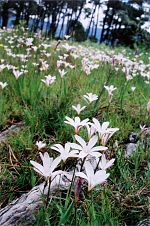American International School of Cape Town

The American International School of Cape Town (AISCT) is a private, non-profit, co-educational institution founded in 1997. The school educates 500 students from 50 countries, ranging in age between 2 and 18 years and instructed by teachers from around the world. The school has an average class size of 16 students with a student-teacher ratio of 10:1. AISCT is accredited by the Western Association of Schools and Colleges (WASC) and endorsed as an independent school by the Western Cape Education Department.AISCT is located on 12 acres in Constantia Hills. The AISCT campus earned a Silver Status as an Eco School. The school’s water supply is collected from rainwater and groundwater. The school has been retrofitted with LED lights and solar panels contribute to 50% of its electricity needs.
Excerpt from the Wikipedia article American International School of Cape Town (License: CC BY-SA 3.0, Authors, Images).American International School of Cape Town
Soetvlei Avenue,
Geographical coordinates (GPS) Address Phone number Website Nearby Places Show on map
Geographical coordinates (GPS)
| Latitude | Longitude |
|---|---|
| N -34.048069 ° | E 18.438556 ° |
Address
American International School of Cape Town
Soetvlei Avenue 42
7864 , Constantia
Western Cape, South Africa
Open on Google Maps






